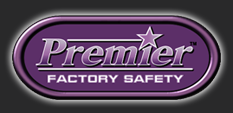The United States Department of Labor’s Occupational Safety and Health Administration, in
conjunction with the National Institute for Occupational Safety and Health, release the Hospital
Respiratory Protection Toolkit, today. This toolkit is a resource the help protect hospital staff
from respiratory hazards for health care employers. OSHA’s current standards relating to
Respiratory Protection require health care employers to create a respiratory protection program
in locations where workers may be exposed to respiratory hazards.
“Hospitals are one of the most hazardous places to work,” said Assistant Secretary of Labor for
Occupational Safety and Health Dr. David Michaels. “One of the ways that we can protect
workers in a health care setting is by providing employers with the resources needed to ensure a
safe workplace. This toolkit will help protect those workers who dedicate their lives to caring for
others.”
“Appropriate respiratory protection is a vital line of defense against airborne hazards hospital
workers might face on the job,” said NIOSH Director John Howard, M.D. “This toolkit is an
important resource to help health care employers ensure their workers are out of harm’s way
when it comes to respiratory hazards.”
“Respiratory protection programs enhance safety for both workers and patients, but there are
many common challenges associated with their implementation,” said Ana McKee, M.D.,
executive vice president and chief medical officer, The Joint Commission. “We hope that by
showcasing the innovative and effective strategies used by health care organizations across the
country to overcome some of these challenges, hospitals can learn from one another as they
implement and improve their own respiratory protection programs.”
If you are an employer in the healthcare industry, it is important to review this new toolkit and
understand how it impacts your employees. OSHA is focused upon workplace safety in
hospitals, and will assess heavy fines for issues with respiratory protection. As such, if you have
any questions about your current respiratory protection plan or if you need to establish one it is
important to work with a qualified third party occupational safety and health auditing firm, to
ensure your procedures are up-to-code and accurate based upon the new toolkit.
If you have any questions about how this new toolkit will impact your business, or if you need to
establish a new respiratory protection plan, please contact us. If you have anything else to add
about the importance of respiratory protections, please leave a comment.

Leave A Comment